If you follow me on Twitter (which you should), pay attention to the news, or have simply been alive since April 2nd, the tariff news has been everywhere. Trump enacted a 10% baseline tariff on all imports and higher "reciprocal" tariffs on almost every country. Last week, I published a piece on how politicians, even at the local level, can use “combative centrism” to speak out against the tariffs, or at least make any statement at all. Combating and responding to the disastrous tariffs, which have already led economists to project a 75% chance of a recession, is the easiest thing to do. Despite overwhelming evidence against their effectiveness, factions within both parties continue promoting "nuanced" views on tariffs rather than speaking clearly against economically harmful policies.
That is disastrous policy and politics. Before the chaotic rollout of Liberation Day began, 81% of Americans viewed foreign trade as an opportunity for economic growth. That means there is literally an 80/20 issue, which Republicans are currently failing on, while Democrats are still flailing about, trying to seem like the smartest person in a burning room. That needs to stop.
Image Credit: Gallup
The Political Calculation Gone Wrong
The biggest case of this, is this tweet from a House Democrats account, highlighting a clip from Representative Chris Deluzio, who decided now would be the time to discuss how tariffs can help supercharge manufacturing.
And if you can tell by the ratio, people were not happy. Some defended this as good messaging for his swing district, but this misses two critical points.
First, a national Democratic account should represent broader economic realities, not district-specific positioning. Second, as Lakashya Jain of Split Ticket noted, Deluzio's redrawn district doesn't even have as strong of a manufacturing base as communicated to justify such messaging.
I don’t think Deluzio should get any flack if he continues to push for targeted tariff policies within his district, but I also don’t think we should be using that message on accounts that are meant to represent the entirety of the party.
The Regressive Reality of Tariffs
Many keep subscribing to the notion that tariffs are pro-worker and will help the lower class, but they are incredibly regressive. The graph clearly demonstrates that lower-income households spend a much larger portion of their income on physical goods compared to wealthy households, who allocate more spending to services. When tariffs increase prices on imports like groceries, clothing, and household items, the financial burden falls hardest on those who can least afford it.
The lowest income quintile, spending nearly 60% of their income on goods, faces a proportionally higher tax burden than the highest income quintile, which spends just over 20% on similar items. This economic reality contradicts the popular narrative that tariffs primarily benefit blue-collar workers, when in fact these workers often bear the greatest costs while receiving few of the promised employment benefits.
Image Credit: Joseph Politano
Killing Innovation at Record Speed
These erratic tariffs will undoubtedly increase costs, with companies like Nintendo already pulling their pre-orders on the Switch 2 to ultimately raise prices. But something more insidious is happening beyond consumer costs - we're actively undermining American innovation and technological leadership.
The meme captures this perfectly - instead of competing to lead the 21st century with breakthrough technologies, we're diverting resources to "make pricier toasters." This regression toward manufacturing consumer goods at the expense of forward-looking industries represents a profound strategic mistake.
Image Credit: X
Consider what Bessent is actually proposing: he wants to reallocate scientific talent from federal agencies toward manufacturing. He celebrates "shedding excess labor in the federal government" while redirecting this workforce toward "the new manufacturing." This vision would have America's brightest scientific minds – researchers potentially developing cancer treatments or breakthrough vaccines – instead producing kitchen mitts and toasters.
This isn't just economically regressive; it's an abandonment of America's competitive advantage. While countries like China are investing heavily in artificial intelligence, quantum computing, and biotechnology, the current administration is proposing we redirect our intellectual capital toward industries where we've long been outcompeted on labor costs.
The reality of this "one-time shot to remake the entire U.S. economic order," as Bessent puts it, is that we'd be sacrificing potentially life-saving research and cutting-edge innovation to manufacture consumer goods that could be produced more efficiently through global trade partnerships. When Bessent says "the old system wasn't working," he fails to acknowledge that America's leadership in research and development has driven prosperity for decades.
There's also an inherent contradiction in the tariff strategy that proponents rarely address: tariffs can either shift consumption to domestic products or generate significant government revenue, but they can't effectively do both. If Americans switch to buying domestically made goods (the supposed goal), tariff revenue plummets. If tariff revenue streams remain strong, it signals Americans are still buying imported products, undermining the claim that tariffs are successfully revitalizing domestic manufacturing. This logical inconsistency reveals how the current approach attempts to serve two incompatible masters.
This approach doesn't just harm consumers through higher prices, iit threatens to derail American innovation precisely when we need it most. We're choosing to compete in the economic battles of the past rather than positioning ourselves to win the technological races of the future.
Innovation and Degrowthers Never Mix
If we want to be a country that builds the future, we cannot cling to the past. Rather than imposing broad tariffs that harm consumers and stifle innovation, we should be investing in education, research, and emerging technologies that will create sustainable, high-paying jobs for the 21st century. The tariff man is seeking to destroy that and it really should not be that hard for us to get the message right here.


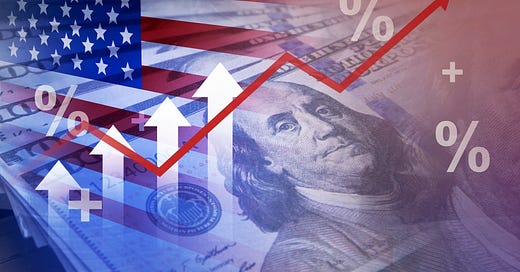


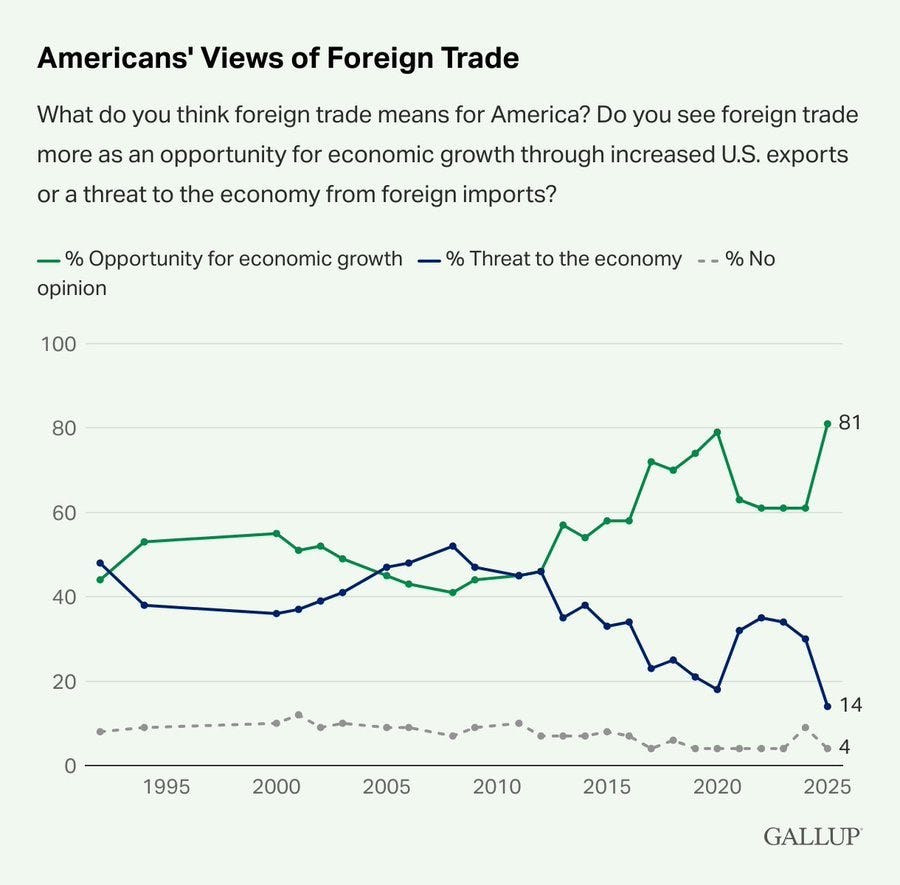
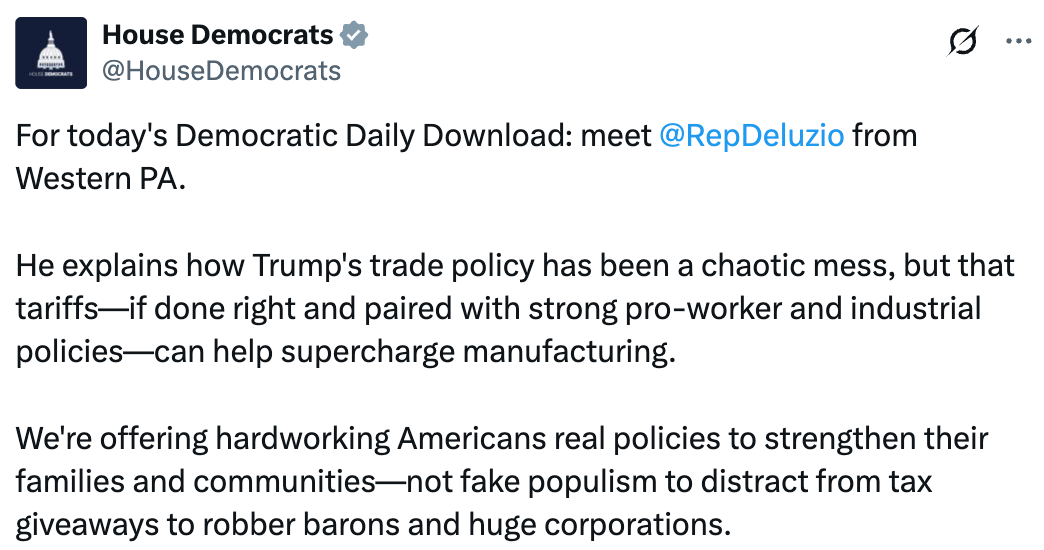

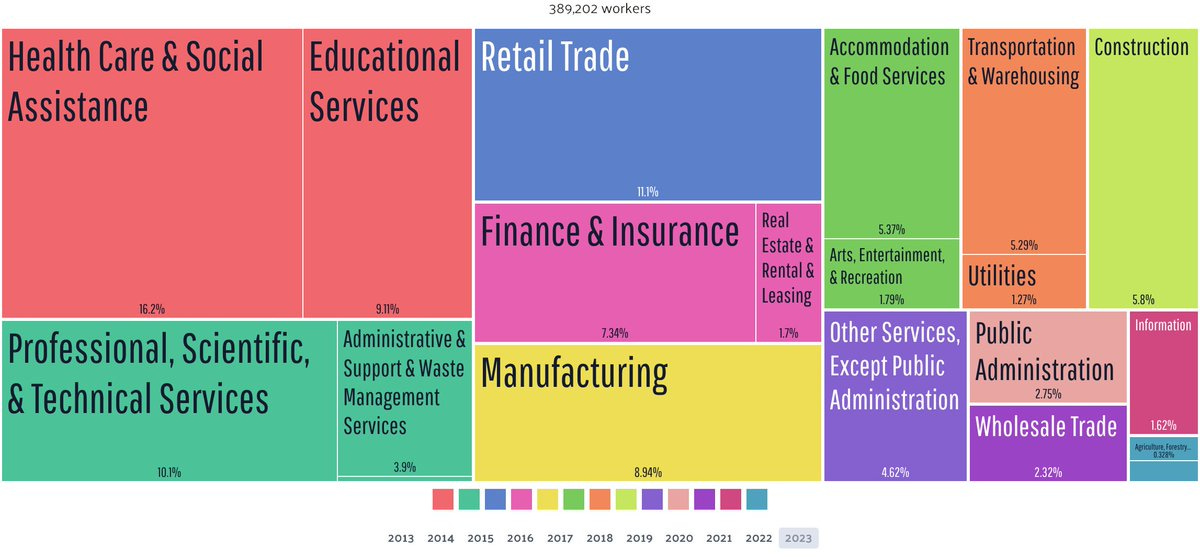
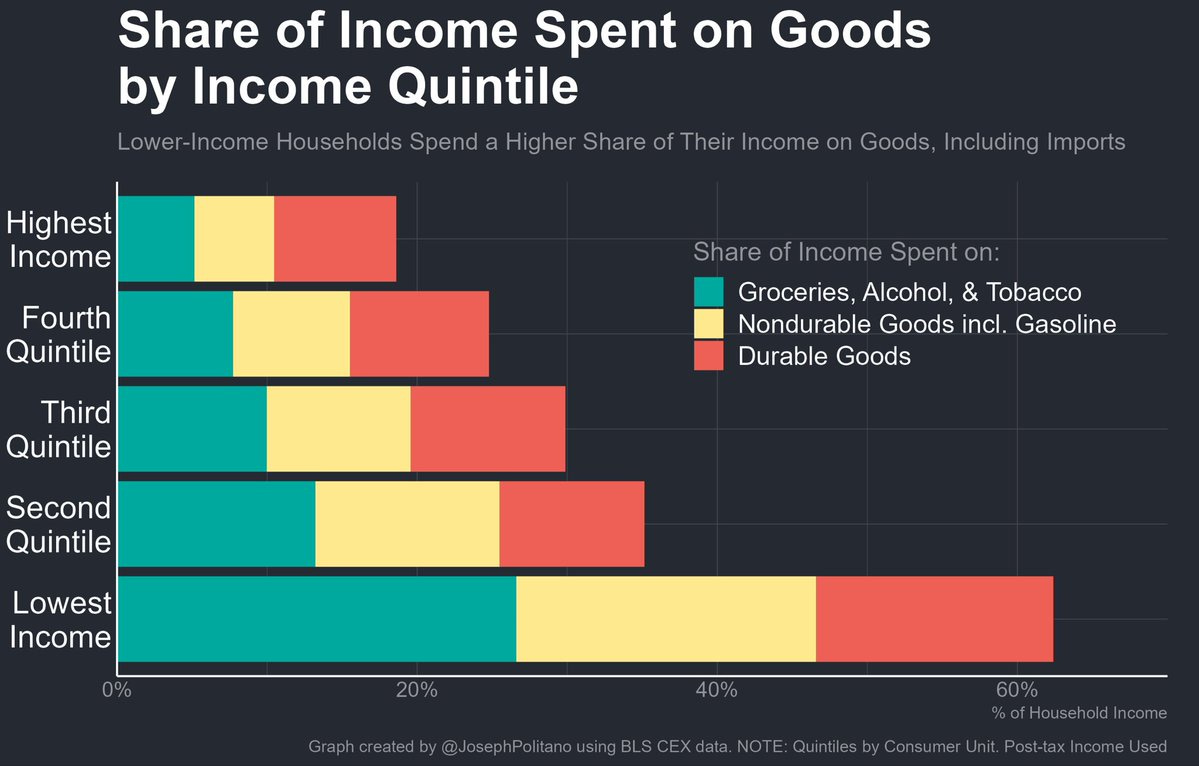
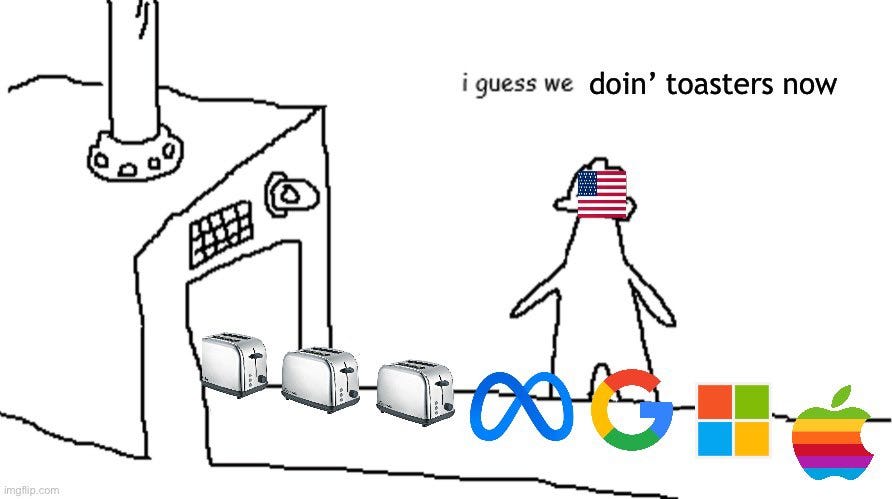
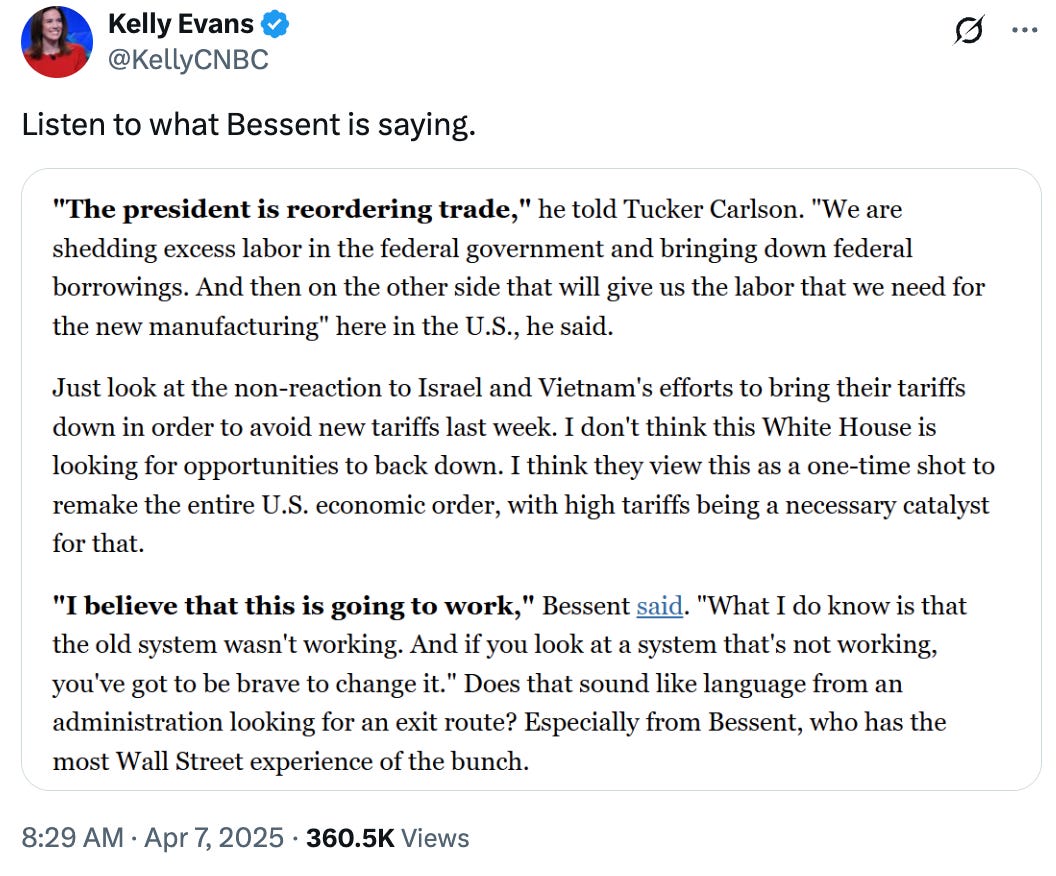
I think I got the reference that wasn't explicitly stated in the body of the article of the Horseshoe being the political tendency for members of the extreme left and right to agree with each other because the political spectrum is more like a horseshoe than a line. If Dems find themselves agreeing with Trump on things such as tariffs, they need to check whether they're left of center or falling down the horseshoe towards some terrible ideas.